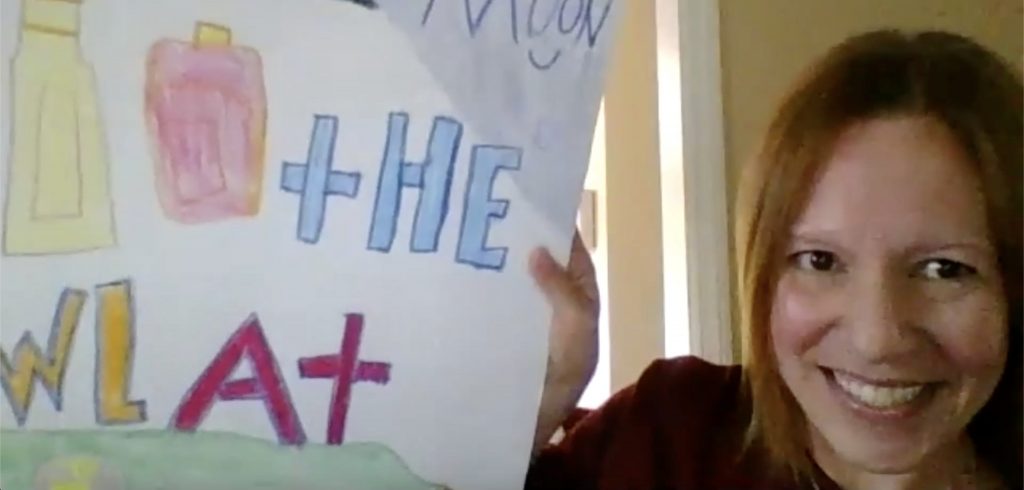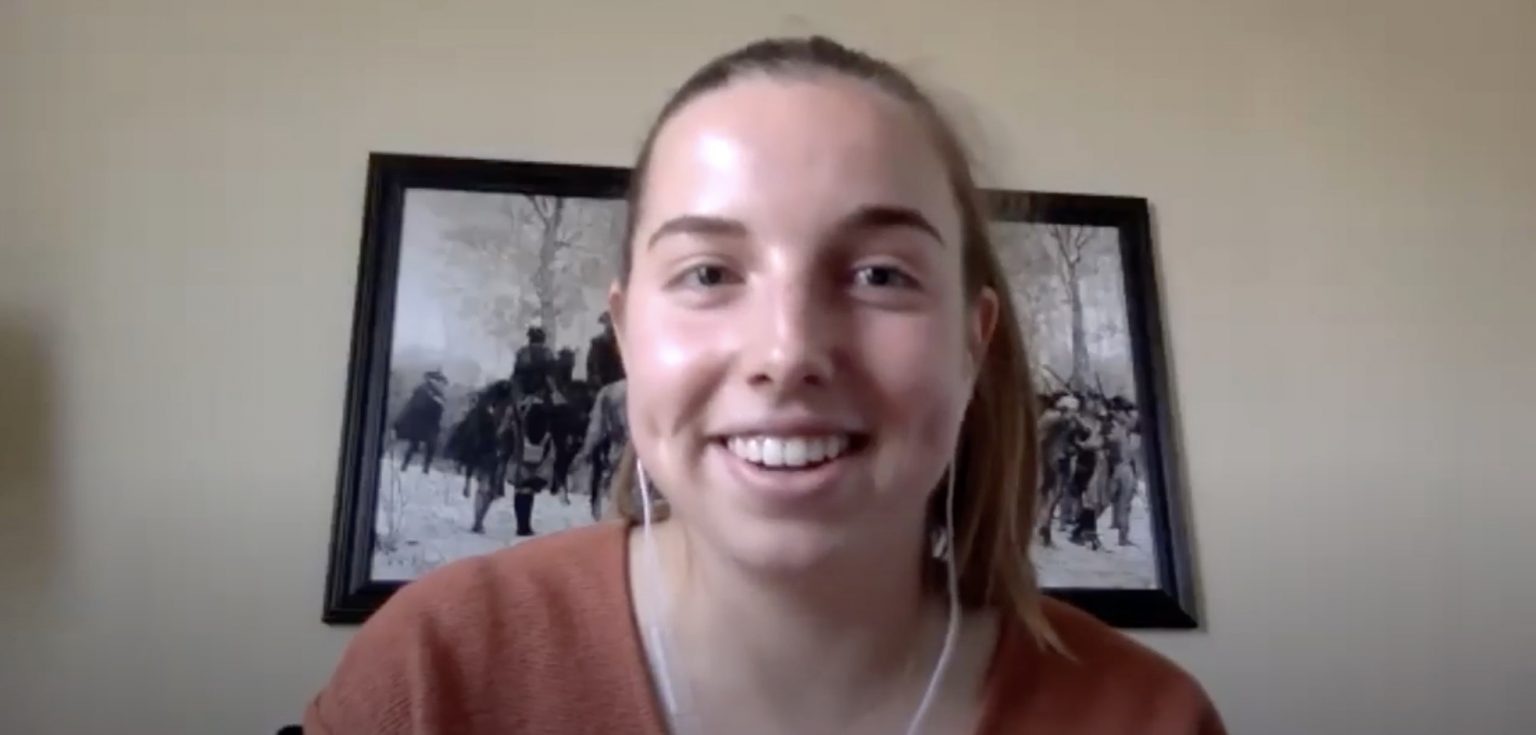“Dean Mast and I were determined to celebrate our senior researchers and their extraordinary work this year,” Rachel Annunziato, Ph.D., professor of psychology and associate dean for strategic initiatives at Fordham College at Rose Hill, said in an email. “I am so deeply grateful for this chance to see them and to celebrate all that they have done.”
Despite the coronavirus pandemic, more than 200 FCRH undergraduate students conducted research this semester. The school also saw a record number of travel grant submissions this spring, though the majority of them were suspended due to the pandemic. Research results were published in a commemorative program for the FCRH 13th Annual Undergraduate Research Symposium and the 10th volume of the Fordham Undergraduate Research Journal.
More than 50 people joined the two-hour-long Zoom call, including faculty, donors, graduating seniors, and their labmates and friends. Each student presenter spoke for several minutes about their research, on topics from nonsuicidal self-injury to the relationship between Instagram use and adolescent male body image.
“At the [in-person] research symposium, I’m going from one place to another,” Maura Mast, Ph.D., dean of Fordham College at Rose Hill, said during the Zoom session. “[But today] I was able to focus on each talk. I pulled up your abstract. I actually had my 14-year-old with me for a while—she’s very interested in many of your topics, she may follow up with you—so it was just terrific. It just reminds me of the joy of learning, and that’s what we’re all about.”
‘A Sense of Normalcy During This Weird Time’
Lindsey Register, a communications and environmental studies double major, presented her senior thesis: “Documentaries Making a Difference: Communication Effects of Environmental Film and Television.” She surveyed roughly 90 Rose Hill students via SurveyMonkey and investigated how nature documentaries have impacted their lives.
Register recalled the first documentary that made an impact on her life: The Cove, an Academy Award-winning film about dolphin-hunting practices in Japan.
“It was about an issue I had never been presented with in my life,” said Register, who first watched the film in a high school science class. “It was so fascinating to me because these people were out there advocating for an issue that I had never known about … I really liked how a film was able to give me that impact of inspiration and feeling of advocacy.”
For her senior thesis, Register also created policy recommendations for environmental education.
“I think governments should be more involved in the funding of documentaries, in the funding of environmental education as a whole,” said Register, who is now searching for jobs that combine her two majors. “There also should be stricter policies in the screening of facts and information that are portrayed in the documentaries.”
Shubarna Akhter, a psychology and biological sciences double major, also spoke about her senior thesis, “South Asian Mental Health Service Use: Risk and Protective Factors for Young Adults.” While working as a research assistant in the labs of two faculty members, Tiffany Yip, Ph.D., and Lindsay Till Hoyt, Ph.D., Akhter learned that many Asian Americans—especially South Asians—don’t use mental health services as frequently as other racial and ethnic groups.
To investigate, she recruited and paid 20 students of South Asian heritage to participate in focus groups at Rose Hill and share their personal experiences, with the aid of a fall undergraduate research grant. She analyzed her data and developed risk and protective factors for using mental health services. Finally, she made predictions on how future interventions could promote mental health services among South Asians.
“As an aspiring psychiatrist, I was able to have these important conversations with South Asian young adults in a professional setting,” said Akhter, who wants to eventually work in the Bronx with minority communities. “I learned what we can do to better improve that field that I want to go into.”
Unlike past presentations, Akhter had no poster to show. Instead of hearing “Congratulations!” in person, she received congratulatory emojis on Zoom. But the virtual symposium was still a special experience for Akhter and her family.
“I really felt the energy radiating from everybody, and I felt like everyone was so engaged at hearing about what I had to say,” said Akhter, who presented her project from home in the Bronx, with her parents cheering her on from the sofa across from her. “And just listening to everybody else was inspiring, and it really gave a sense of normalcy during this weird time.”
A Homemade Poster and Yoga
As a gift to the graduating seniors, Annunziato’s nine-year-old twin boys created a “Howl at the Moon” poster and showed it to the students on camera.
“That’s a bar off of Arthur Ave that my students have told me about for years,” Annunziato explained in an email. “My sons have been very moved by what our seniors especially are going through and surprised even me with this hilarious poster that was meant to be a tribute to senior week.”
Towards the end of the Zoom call, many of the participants struck a yoga pose and took a group screenshot for Nicole Smina, a student who is training to become a yoga teacher. Smina explained that she is participating in a 14-day yoga challenge, which requires posting photos on social media. In the spirit of her practice, she wanted to post a photo of people doing yoga in a Zoom call.
“You’re really exposing people who are in sweatpants right now,” one student joked.
“We are such versatile researchers!” Annunziato added.
As the event came to a close, Annunziato offered a few last words.
“You’ve given me joy, you’ve given me laughs, and I feel like we’re still together. So, thank you,” Annunziato said, raising a glass and a toast to everyone on Zoom. “Cheers to our senior FCRH researchers.”


